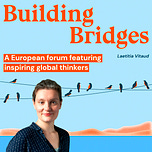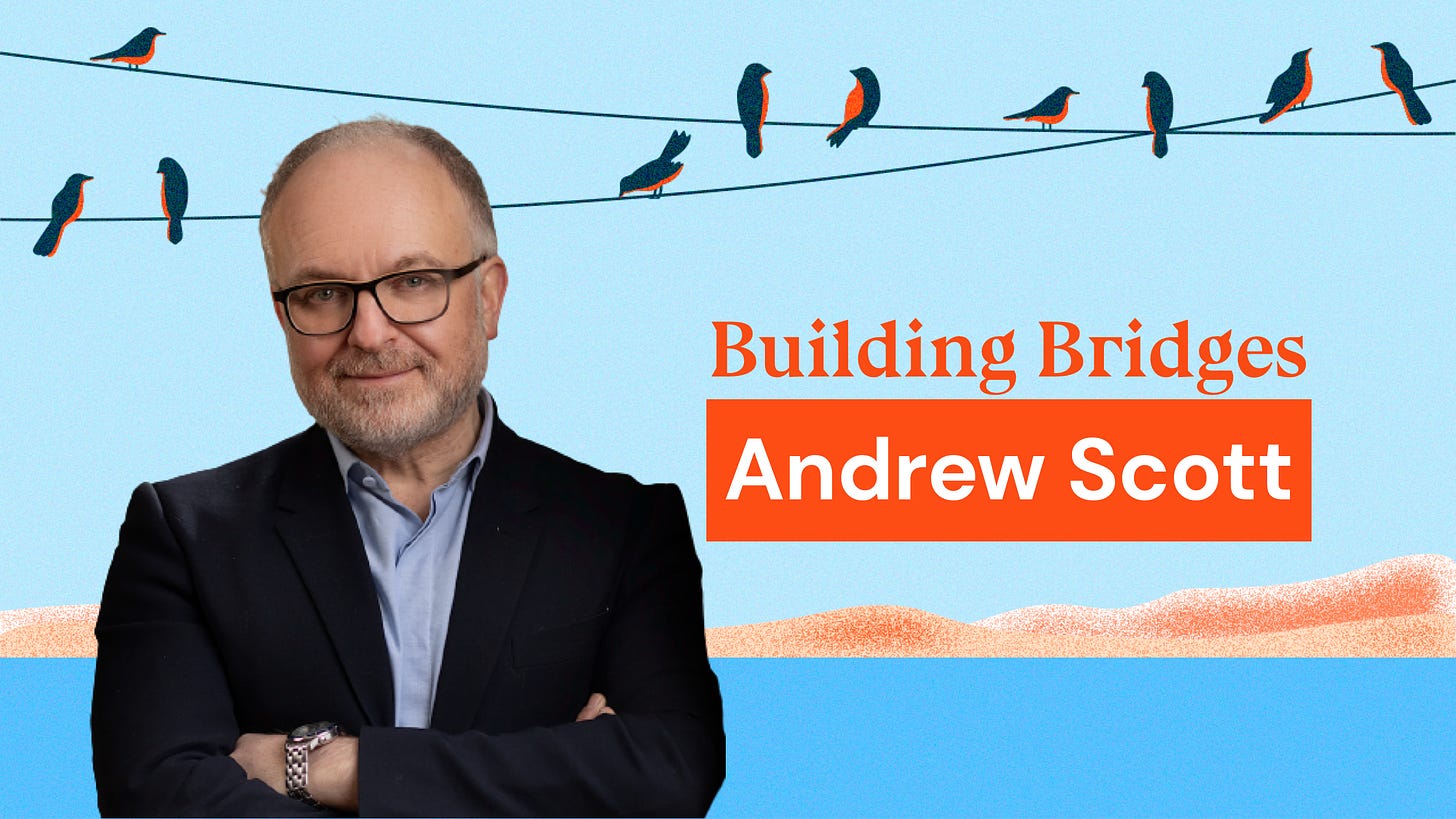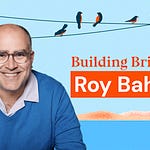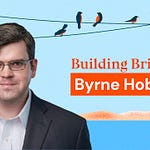For this new episode of the Building Bridges podcast, I’m happy to share the conversation I had with Andrew Scott.
I discovered Andrew’s work (and that of his co-author Lynda Gratton) a few years ago when I read their book The 100-Year Life: Living and Working in an Age of Longevity. This book influenced my own work profoundly as I became more and more convinced that increased longevity and ageing of the population play a huge part in shaping the future of work.
The second book they wrote together was published in 2020. The New Long Life: A Framework for Flourishing in a Changing World is as good as the first. It offers a more practical roadmap for individuals and governments. Adapting to the age of longevity involves all the dimensions of our lives (love, leisure, family life, savings, training, health….). It would be much too shortsighted to be content with just forcing people to postpone retirement.
I read the second book during the pandemic and couldn’t help but wonder, “What does the pandemic change?”, “Doesn’t it make this book all the more relevant?”. That’s why I’m thrilled to share this conversation I had with Andrew in which I asked him all my questions about the books he wrote with Lynda Gratton, and the impact of the pandemic.
Andrew J. Scott is Professor of Economics at London Business School and a consulting scholar at Stanford University’s Center on Longevity. He is co-founder of The Longevity Forum, an organisation aimed at achieving healthier longer lives, and member of the Cabinet Office Honours Committee (Science and Technology).
How you age isn’t destiny. It is profoundly influenced by your actions and beliefs. If you take a chronological approach to your age, then this encourages you to believe ageing occurs at the same fixed, invariant rate for everyone — one year every year. But from the perspective of the malleability of age, this is far from the case. It is fascinating to realise that only a quarter of how you age is genetically determined. That leaves considerable scope for your own actions, as well as events beyond your control, to exert an influence.
The natural rhythm and structure of your life narrative is marked by calendar time and the passing of the years. In the face of longevity, if we want to reimagine age then we must first decouple the idea of a simple link between time and age. That requires imagining your age is malleable — as you live longer and with a greater chance of good health, then what it means to be forty, sixty or eighty years old will change in profound ways. It is the malleability that underpins the redesign of life stages.
I hope you enjoy listening to this podcast! Please share it with someone else who you believe might like it too 🤗
For access to the full transcript, there will a paid version of Building Bridges to which you’ll be able to subscribe soon. Stay tuned.
Follow Building Bridges on Twitter! You can listen to all our podcasts on Apple Podcasts.
Also Building Bridges is part of a network of Substack newsletters, which you may want to discover: there’s Nicolas Colin’s European Straits, there’s my Laetitia@Work, and our French newsletter, Nouveau Départ.
(Credit: Franz Liszt, Angelus ! Prière Aux Anges Gardiens—extrait du disque Miroirs de Jonas Vitaud, NoMadMusic.)
















Share this post